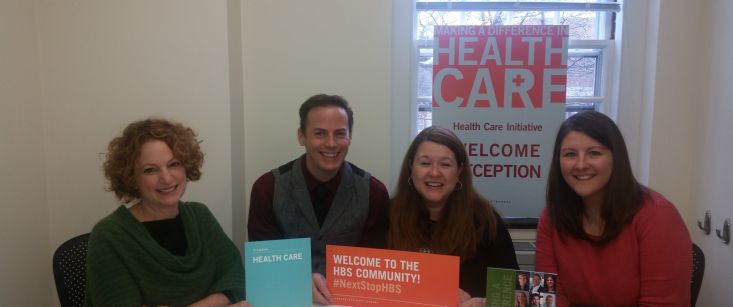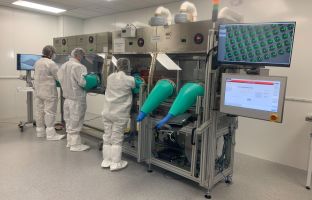Health care is on everyone’s mind these days. Indeed, there’s much to grapple with: We’re facing so many challenges around lowering the cost of health care delivery while increasing quality and access to care. At the same time, we’re presented with opportunities for new business models, improved operations, and medical innovations.
The Health Care Initiative (HCI) at Harvard Business School (HBS) was founded to meet these challenges and seize these opportunities. It brings together people, ideas, and resources that yield new innovative models for health care practice. Essentially, the HCI connects MBA students, alumni, faculty, staff, and Executive Education participants by serving as a gateway for research, educational programs, and entrepreneurial projects across all sectors of health care.
HBS alumni and students—both current and prospective—often ask what it takes to be a part of the HCI. The only real requirement is a passion to make a difference in health care. To help capture the breadth and depth of health care at HBS, the HCI hosts a “Welcome Reception” in September for students who have an interest in the industry. This event offers the opportunity for incoming students to meet faculty who teach and conduct research in health care, leaders of the student-run Health Care Club, and staff that support health care activities and programs both on and off campus.Later in the fall, the HCI works with the Career and Professional Development department to execute “Career Days.” This program is typically structured as a series of panels made up of alumni who are leaders in their respective health care sectors. The HCI offers five to six panels that span various health care sectors and health care topics. These panels are a great opportunity for interested students to learn more about a specific sector, ask questions related to that field, and gain advice for navigating their careers.
Across the School, we often hear that one of the best resources at HBS is its alumni—both because they offer such great insight and networking potential, and because they can potentially help with securing internships and full-time positions. To capitalize on this benefit, the HCI offers the “Alumni-Student Mentor Program.” Each fall, the HCI polls more than 6,500 alumni from across all sectors of health care to determine if they would be interested in mentoring an MBA student. Once we have the complete list of alumni, students are invited to sift through their profiles and make requests for one or more mentors. The HCI then does its best to match students to the alumni they’ve requested. Students can have as many mentors as they like, but we highly recommend that they have at least one. It can be a life-changing relationship.
While HBS does not offer a major in health care management, it has no shortage of health care educational opportunities. In the first year of the MBA Program, about 10-15 percent of all case studies covered in the classroom are health care-related. There are also eight to 10 health care electives available in the second year, as well as independent projects and field studies. Also, with nearly 200 health care-related events hosted by the HCI, the Health Care Club, and the HBS Health Care Alumni Association, it’s important to begin prioritizing your interests early so that you can plan your events schedule accordingly. It will not be possible to attend every health care event!
In the first few months at HBS, it can feel like you're drinking from the proverbial fire hose. However, rest assured that if you have an interest in health care and you are looking for guidance, the HCI is here to help you navigate this very exciting time in your life.







